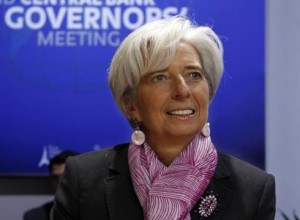Nigeria and South Africa Steer Africa’s Growth- IMF
The International Monetary Fund (IMF) report claimed that Nigeria and South Africa accounts for a major portion of Africa’s Gross Domestic Product (GDP).
The report presented by IMF stated that intraregional trade and financing links within sub-Saharan Africa have been expanding significantly in recent years. Despite the development, the report regretted that economic integration at the regional and sub-regional level is still poor and has a long way to go.
“As this integration proceeds and economic linkages deepen, the importance of spill over effects from large countries to the rest of sub-Saharan Africa, and within their own sub-region, will grow: closer economic linkages inevitably imply increased exposure to shocks, both favourable and unfavourable, in partner countries,” it said.
According to the IMF African Department senior economist Cheikh Gueye, largely, South Africa is shaping the structure of trade within sub-Saharan Africa, adding that, no less than 12 countries in sub-Saharan Africa export to South Africa, which represents one per cent of their GDP.
He said, “On the investment side, we have noticed that South African companies are investing in the rest of Africa, and this has an impact in shaping trade flows. Third, there are linkages in the financial system. Since 2005, Nigerian banks have extended their operation in many countries in sub-Saharan Africa. That is also true of South African banks.”
Adding, Gueye said, through its neighbouring countries, Nigeria has different trade policies, which transmit from to other countries.
“Let us look at South Africa and its trade channel because it is quite large. South Africa is part of the SACU, the South African Customs Union. The country and the other members of the SACU have what we call a customs revenue sharing formula.”









